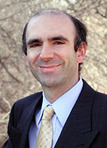Thanks To Community Protest, EPA Won’t Burn Huge Stockpile Of Explosives In The Open
Community opposition in Minden was key to the decision not to burn the explosives in the open, an EPA spokesman said.
CREDIT: Photo Courtesy Chris Broussard
The Environmental Protection Agency has effectively abandoned a plan to conduct an open burn of 15 million pounds of volatile military explosives in Minden, Louisiana, following six months of persistent protest from the local community.
In a statement published Friday, the EPA said it would not stand in the way of an alternative method of disposal for the massive stockpile of explosive M6 propellant, which has been stored at a Louisiana National Guard military training site called Camp Minden since 2010.
The explosives are deteriorating and are at moderate risk of spontaneous detonation. Because of that, the EPA, the U.S. Army, and two Louisiana state agencies had planned to burn them all the in open — the “largest chemical burn of its kind in U.S. history.”
The plan sparked outrage in Minden due to environmental and health concerns. When burned, M6 can release chemicals that are probable human carcinogens, with chronic exposure likely to produce organ damage.
After six months of protest, though, open burn is now offically “off the table,” said David Gray, the EPA’s director of external affairs for the region. Gray told ThinkProgress that instead, the explosives would be disposed of in a closed incinerator with strict emissions controls.
Among other things, Gray specifically cited the community when asked why the decision was made. “We would not have gotten here without their input,” he said. “They did a lot of work.”
To say the protesters were happy would be a bit of an understatement.
“We won!” said Melissa Downer via phone on Friday, her 3-year-old yelling in the background. “We’re just so excited that they took the open burn off the table. … Honestly, today it feels like we made history.”
Brian Salvatore, a chemistry professor at Louisiana State University at Shreveport who has led the fight against the open burn, said the closed incinerator would be a good alternative. According to the EPA, the incinerator would be operated by a company called Explosive Service International, and would utilize “advanced air pollution control options to maximize safety and flexibility in handling the rapidly decomposing materials and deteriorating storage and packaging materials.”
“I’m pleased with the method that’s been chosen,” Salvatore said. “We were being very cautious about any type of burn, but this one I’ve studied quite a bit.”
“I feel that as far as incinerators go, this one does a good job,” he added. “This one was my favorite incinerator.”
Despite the decision, there is still a small chance an open burn could still occur, as a “solution of last resort” if the explosives stockpile deteriorates to the point where it’s in immediate danger of uncontrolled detonation, Gray said. The explosives are located just a few miles of Minden’s population center, so Salvatore said that an open burn would be understandable in that circumstance.
There are still more steps to be taken before the closed burn begins, including completing contracting requirements for the disposal company and doing test burns to monitor emissions. Salvatore, who serves on the official committee that provided input to the EPA and other agencies, said the actual process of closed burning the explosives likely would not start for another year.
The decision in Minden is a win for open burn protesters there, but open burns of military explosives are still happening across the country. It’s unclear exactly how much open burning of explosives is happening in total today, but Army spokesperson Dave Foster told ThinkProgress that more than 18 million pounds of propellant — just one type of explosive — were burned in 2014.
There exists opposition to military open burns in many communities, and Downer said she hopes the victory in Minden will be an inspiration.
“We caught wind of this project and the citizens rose up against it — we made it stop,” she said. “We made the change happen, and that’s going to be huge for what can be done for chemicals like this across the nation.”
The post Thanks To Community Protest, EPA Won’t Burn Huge Stockpile Of Explosives In The Open appeared first on ThinkProgress.
Joseph J. Romm's Blog
- Joseph J. Romm's profile
- 10 followers



